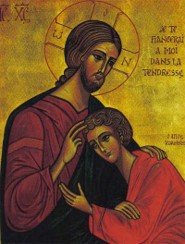Volume XIII: Supplementary Documents (ii)
Overview
Since 1987, when the work began on preparing these Magisterial Summaries of Official Catholic Teachings, many new documents and instructions have appeared. Therefore, it was not possible to include all recent documents in the eleven volumes according to the specific theme of each book. As a result, it has become necessary to update this series. This Supplementary Volume XII, therefore, includes these documents, in themselves a record of guidance of the Magisterium in the years leading into the Twenty First Century, the dawn of the Third Christian Millennium. The most significant documents included in this Supplementary Volume are the three major encyclicals: Evangelium Vitae, on the morality of human life issues, Ut Unum Sint, on ecumenism and Christian unity, and Fides et Ratio, on faith and philosophy. To these documents are added various apostolic exhortations of Pope John Paul II which were reflections on the work of the Synods of Bishops that met as the Millennium drew closer.
Life-Giving Interpretations
“When we read and study the teachings of the Magisterium, we are not merely looking through a collection of man-made ecclesiastical documents. We are encountering life-giving interpretations and expressions of the Gospel of Christ. Given with the very authority Christ gave to Saint Peter and the Apostles, these teachings arise from that essential unity between the Holy Spirit and the visible Church. As the soul is to the body, so the Holy Spirit is to the Church (cf. Catechism of the Catholic Church, nos. 797,798). It is through the Holy Spirit that the Lord Jesus Christ still reaches us through His apostolic shepherds. It is through the same Spirit that He is always guiding and inspiring God’s People as they carry out His mission in the world around them”.
† George P. Morse, K.G.C.S.G. President and Publisher (1917-2013)
Table of Contents
VOLUME XIII
- Novo Millennio Ineunte, Apostolic Letter of Pope John Paul II at the Close of the Great Jubilee of the Year 2000, January 6, 2001
- Pastores Gregis, Postsynodal Apostolic Exhortation of Pope John Paul II on the Bishop, Servant of the Gospel of Jesus Christ for the Hope of the World, October 16, 2003
- Letter to the Bishops of the Catholic Church on the Collaboration of Men and Women in the Church and in the World, Congregation for the Doctrine of the Faith, May 31, 2004
- The Family, Marriage and “De Facto” Unions, Pontifical Council for the Family, July 26, 2000
- Considerations Regarding Proposals to Give Legal Recognition to Unions between Homosexual Persons, Congregation for the Doctrine of the Faith, June 3, 2002
- Address of John Paul II To the Participants in the International Congress On “Life-Sustaining Treatments and Vegetative State; Scientific Advances and Ethical Dilemmas,” March 10, 2004
- Doctrinal Note on Some Questions Regarding the Participation of Catholics in Political Life, Congregation for the Doctrine of the Faith, November 24, 2002
- Pastores Gregis, See Volume III (B)
- Ecclesia de Eucharistia, Encyclical of Pope John Paul II on the Eucharist In Its Relationship to the Church, April 17, 2003
- Redemptionis Sacramentum, Instruction of the Congregation for Divine Worship and Discipline of the Sacraments, March 25, 2004
- Mane Nobiscum Domine, Apostolic Letter of Pope John Paul II to the Bishops, clergy and Faithful for the Year of the Eucharist, October 7, 2004
- Vita Consecreta, Post-Synodal Apostolic Exhortation of Pope John Paul II on the Life of Religious Consecration, March 26, 1996
- Deus Caritus Est, Encyclical of Pope Benedict XVI on Christian Love, December 25, 2005
- Rosarium Virginis Mariae, Apostolic Letter of Pope John Paul II on the Rosary, October 16, 2002
- Ecclesia de Eucharistia, Encyclical of Pope John Paul II on the Eucharist In Its Relationship to the Church, April 17, 2003 Ecclesia de Eucharistia, Encyclical of Pope John Paul II on the Eucharist In Its Relationship to the Church, April 17, 2003
Client View
Are you ready to start?
WE SURE ARE







